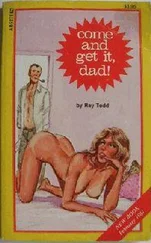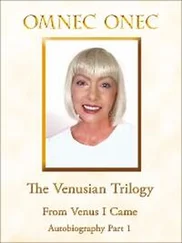Говард Голдблатт - Chairman Mao Would Not Be Amused - Fiction From Today`s China [редактор Говард Голдблатт]
Здесь есть возможность читать онлайн «Говард Голдблатт - Chairman Mao Would Not Be Amused - Fiction From Today`s China [редактор Говард Голдблатт]» весь текст электронной книги совершенно бесплатно (целиком полную версию без сокращений). В некоторых случаях можно слушать аудио, скачать через торрент в формате fb2 и присутствует краткое содержание. Жанр: Современная проза, на английском языке. Описание произведения, (предисловие) а так же отзывы посетителей доступны на портале библиотеки ЛибКат.
- Название:Chairman Mao Would Not Be Amused - Fiction From Today`s China [редактор Говард Голдблатт]
- Автор:
- Жанр:
- Год:неизвестен
- ISBN:нет данных
- Рейтинг книги:3 / 5. Голосов: 1
-
Избранное:Добавить в избранное
- Отзывы:
-
Ваша оценка:
Chairman Mao Would Not Be Amused - Fiction From Today`s China [редактор Говард Голдблатт]: краткое содержание, описание и аннотация
Предлагаем к чтению аннотацию, описание, краткое содержание или предисловие (зависит от того, что написал сам автор книги «Chairman Mao Would Not Be Amused - Fiction From Today`s China [редактор Говард Голдблатт]»). Если вы не нашли необходимую информацию о книге — напишите в комментариях, мы постараемся отыскать её.
In contrast to the utopian official literature of Communist China, the stories in this wide-ranging collection marshal wry humor, entangled sex, urban alienation, nasty village politics and frequent violence. Translated ably enough to keep up with the colloquial tone, most tales are told with straightforward familiarity, drawing readers into small communities and personal histories that are anything but heroic. "The Brothers Shu," by Su Tong (Raise the Red Lantern), is an urban tale of young lust and sibling rivalry in a sordid neighborhood around the ironically named Fragrant Cedar Street. That story's earthiness is matched by Wang Xiangfu's folksy "Fritter Hollow Chronicles," about peasants' vendettas and local politics, and by "The Cure," by Mo Yan (Red Sorghum; The Garlic Ballads), which details the fringe benefits of an execution. Personal alienation and disaffection are as likely to appear in stories with rural settings (Li Rui's "Sham Marriage") as they are to poison the lives of urban characters (Chen Cun's "Footsteps on the Roof"). Comedy takes an elegant and elaborate form in "A String of Choices," Wang Meng's tale of a toothache cure, and it assumes the burlesque of small-town propaganda fodder in Li Xiao's "Grass on the Rooftop." Editor Goldblatt has chosen not to expand the contributors' biographies or elaborate on the collection's post-Tiananmen context. He lets the stories speak for themselves, which, fortunately, they do, quietly and effectively.
From Library Journal
The 20 authors represented here range from Wang Meng, the former minister of culture, to Su Tong, whose Raise the Red Lantern has been immortalized on screen.
***
Chinese literature has changed drastically in the past thirty years. During the Cultural Revolution (1966-1976) arts and literature of all sorts were virtually nonexistent since they were frowned upon by official powers so that attempts to produce any were apt to cause one’s public humiliation and possibly even death by the Red Guards and other unofficial arms of the government. After 1976, in the wake of Mao’s death, literature slowly regained its importance in China, and by the mid-1980s dark, angry, satirical writings had become quite prominent on the mainland.
In the wake of Tiananmen Square, dark literature faded somewhat, but never vanished. Now Howard Goldblatt, a prominent translator of Chinese fiction and editor of the critical magazine Modern Chinese Literature, has compiled a representative collection of contemporary Chinese fiction entitled Chairman Mao Would Not Be Amused. Even with my limited knowledge of modern China I feel certain the title of the book is fairly accurate.
Mo Yan is one of my favorite contemporary writers. His dark, no-holds-barred satires Red Sorghum and The Garlic Ballads detailed what he sees as the failings of both Chinese peasants (of which he was born as one) and the Chinese leaders. His short story "The Cure" is in the same vein, detailing how a local government representative-probably self-appointed during the Cultural Revolution, although that is never made quite clear in the story-leads a lynching of the village’s two most prominent leaders and their wives. But, as in most Mo Yan stories, the bitterness directed at the lyncher is double-edged with the bitter look at a local peasant who sees the deaths of the two village leaders as a desperate chance to possibly rescue his mother from impending blindness. The story is coldly realistic and totally chilling in the rational way it treats the series of events.
Su Tong is the author of the novella "Raise The Red Lantern", the basis of the wonderful movie. His "The Brothers Shu" is a bitter look at some traditional character weaknesses of Chinese people, and particularly how they affect family life. The Shu family is incredibly dysfunctional. The father nightly climbs up the side of his two-family house to have sex with the woman upstairs until her husband bolts her windows shut. So the woman sneaks downstairs to have sex in the younger son’s bedroom while the son is tied to his bed, gagged and blindfolded. Meanwhile the elder son abuses the girl upstairs until she falls in love with him. When she becomes pregnant, they are both so shamed they form a suicide pact, tie themselves together and jump into a river, where the boy is rescued in time but the girl dies. The younger son so hates his older brother-somewhat deservedly considering the abuse heaped on him by the brother-that he pours gasoline through his bedroom and sets it ablaze.
And so on, complete with beatings and torments worthy of the most dysfunctional American families. While not a particularly likeable cast of characters, the story is strong and thoughtful.
Perhaps the most moving part about "First Person", by Shi Tiesheng is in the brief author description in the back of the book. Shi is described as “crippled during the Cultural Revolution”. So many lives were needlessly destroyed during that tumultuous decade, it is easy to feel that the arrest and subsequent conviction of the notorious Gang of Four was not nearly sufficient punishment for them.
"First Person" tells the story of a man with a heart condition-Shi frequently writes about the lives of handicapped people, according to his description-who is visiting his new 21st floor apartment for the first time. While climbing the stairs very slowly, taking frequent rests, he notices a cemetery separated from the apartment building by a huge wall. On one side of the wall is sitting a woman, while on the other side stands a man. As the man climbs the stairs he fantasizes about why the couple are there, and why they are separated by the wall. Perhaps the man is having an affair, and the wife is spying on him as he rendezvous with his lover?
But then the man notices a baby lying on a gravesite, being watched from a distance by the man, and he realizes that the couple is abandoning the child. An interesting story about the fanciful delusions a person can have, but with no real depth beyond that.
Two stories involve fear of dentists in completely different ways. Wang Meng’s "A String of Choices" is a very funny story that combines a bitter look at both Eastern and Western medicine with perhaps the most extreme case of fear of dentists imaginable. Chen Ran’s "Sunshine Between the Lips" tells of a young girl whose adult male friend exposes himself to her. If that were not traumatic enough, after he is arrested for exposing himself to a complete stranger, he sets his apartment on fire and dies a brutal death. This event, combined with a near-fatal bout of meningitis, creates in the girl a deep fear of phallic objects such as needles and penises. So imagine her trauma when she develops impacted wisdom teeth at the same time as she gets married. While this description might sound a bit ludicrous, this story is very serious and very well-executed.
A strong satire on how history can be rewritten to suit the writers’ needs is Li Xiao’s "Grass on the Rooftop". When a peasant’s hut goes on fire, he is rescued by a local student. The rescue is written up for an elementary school newspaper by a local child, but the story is picked up by other papers, changing radically with each reprinting until the rescuing student becomes a great hero of the Maoist revolution because of his supposed attempt to rescue a nonexistent portrait of Mao on the wall of the hut. While this story is uniquely Chinese in many ways, it resonates in all societies in which pride and agenda is often more important than the truth.
Anybody interested in a look at contemporary Chinese society should enjoy this collection immensely.
![Говард Голдблатт Chairman Mao Would Not Be Amused - Fiction From Today`s China [редактор Говард Голдблатт] обложка книги](/books/304116/govard-goldblatt-chairman-mao-would-not-be-amused-fiction-from-today-s-china-redaktor-g-cover.webp)












